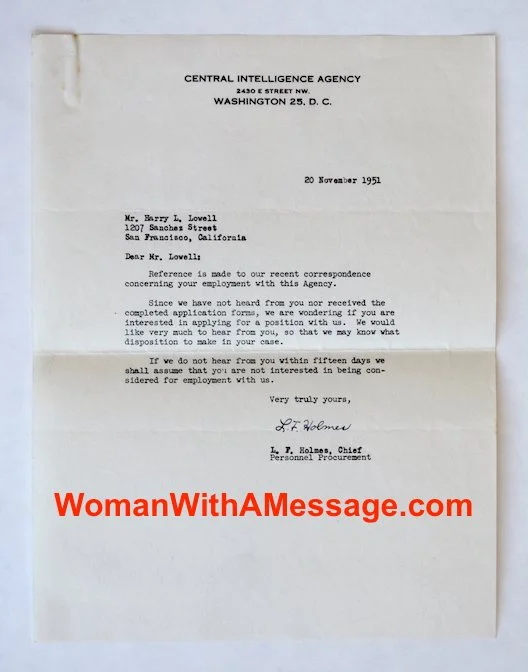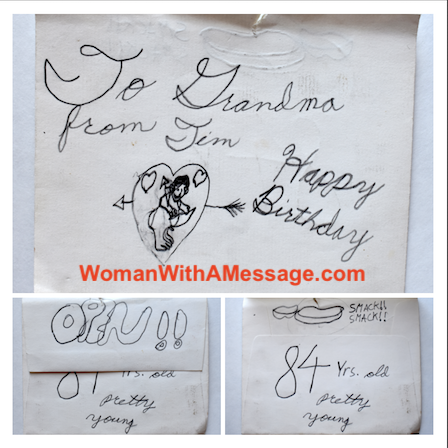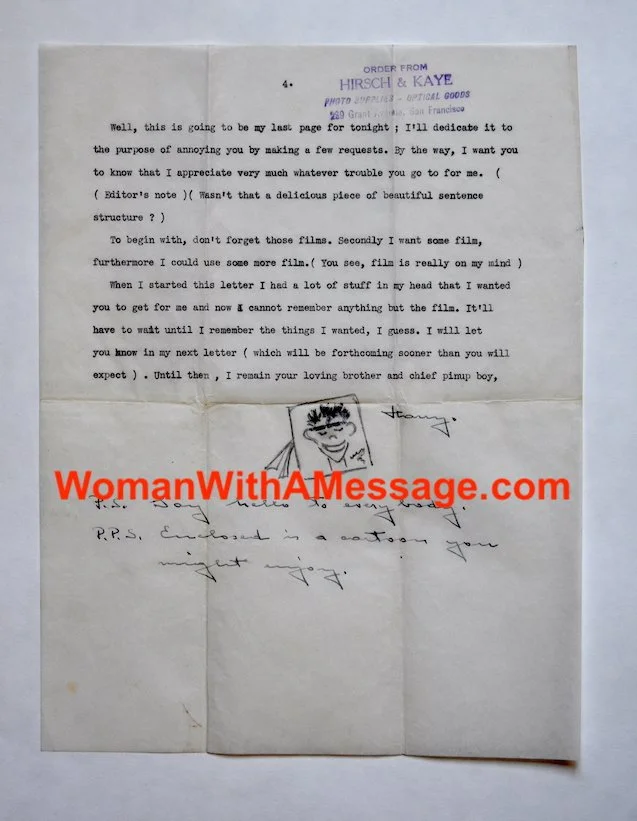Link to Family Tree to understand family relationships.
Today’s letter from Helene was written a year later than the ones we’ve seen in the most recent posts – as Helene and Vitali experience their second year apart from their children. Today she writes to Eva, tomorrow she will write to Harry.
Vienna, 8 December 1940
My golden Eva-child!
At this time of the year, it’s a hard decision for Papa to crawl out from under the feathers, especially on a Sunday. My attempt to make this happen: “breakfast is on the table!” But that doesn’t always work either. Only the call of the Valkyries “Hojotoho, the mail is here” - has the desired effect with him. Since I recently in a most vile manner, took advantage of his gullibility as far as it goes, yesterday even though he heard the mail delivery woman’s doorbell ring, he wouldn’t get up out of bed. But he believed that a less interesting piece of mail had arrived, because I replied to his: “bring the mail in” with “no” but only because of the rhyme [herein/in; nein/no], in order to compete with Harry. When I started laughing at letter #10, he realized there must be mail from you and he jumped right out of bed. A second jump was to breakfast, which we then had together with Homeric laughter. I don’t know, Everl, if you have done the right thing in having Harry not read your letters anymore. If I still remember my little son well, he will only with great difficulty be able to give up on the little tidbits that are in there. I thank you especially for the wishes for my birthday and one has to be glad that not all wishes are fulfilled: “you shall get fat, you shall get fat, three times as fat” [a takeoff on the traditional birthday song]. It’s horrible what you wished me there. I certainly agree with the third line of the song: “you should come here, you should come here, very very soon” [another takeoff]. This I wished myself for my birthday this year, and since this wish appears to be more necessary than to increase my girth three times – which the Lord himself would certainly see – I hope that this wish would especially be fulfilled by Him. It is noble the way I am now. I wanted to give some of the birthday kisses to Papa, but he didn’t take them. He wants to pick them up himself, and he says he wants to do that as soon as possible. I have nothing against that.
In order to shorten my wait for the mail, I had decided this week to scrub the floor and wash it. Papa saw a storm cloud on my forehead and he left the house early. I prepared the floor as if it were the only reason for the mail being late, and moaning and groaning it put up with my abuse. In this way, I let it out my displeasure and it was easier to do the work rhythmically. I remembered a refrain from the Lipinskaya repertoire: “I didn’t know I was so strong” When I was about at the last third of the work, my anger and my strength were about done, I made do with the battle cry: “strong muscles, fabulous”. Upon finishing at about 5 in the afternoon (I started at 8 in the morning), in my childish disposition, I hoped to be rewarded for it with the afternoon mail which of course didn’t show up. What should I do? Should I scrub the floor again? That would be stupid. Papa said he wouldn’t be surprised if I acted like a witch: if in the morning, noon and night, he arrived and found me riding my broomstick, which I could not really deny; my uniform was quite sporty, like something you’d wear in Blocksberg. [currently known as Brocken]
Yesterday we visited the girls, although we had actually intended to stay home. But they were so insistent about it that we didn’t stick with our original plan. They met two married couples this week. One couple, whom they know by sight, live in Laimgrubengasse. They could have probably handled that. But with the other one, maybe not. The dear Hansi Niese, who must be clairvoyant, sang:
Yes on the Lahmgruab'n and on the Wieden,
Dulidulijöhö, dulidulijöhö
yes, the taste is very different,
Dulidulijöhö, dulidulijöhöI did my best to give them a lesson in a sense of community, but some people just don’t get the point of that.
Now I come back to your letter. You wrote that Harry had made the point several times that you were looking very nice these days. Why don’t you see at the post office if you might be able to send a picture? Paul could probably take one of you.
Many kisses,
Helen
Having finally received mail from her beloved children, Helene is in a lighthearted mood. She makes puns and (mis)quotes songs. When relating a story about visiting friends, she includes a verse from a bawdy song.
I don’t think I have a photo of Eva taken at this time. Below is Eva’s yearbook photo which probably would have been taken in the spring of 1940. She looks far more serious and her hair and dress are far more conservative than most of her classmates — perhaps she has begun looking more “American” by the time of this letter.







































